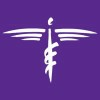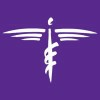Is it the flu or just a cold: How to tell, what to do
It’s that season when sniffles, fevers, aches and pains may get you down. To recover as quickly as possible and prevent serious complications, it’s important to know what’s causing your distress. Is it a simple cold or the flu? And what should you do?
“They are both contagious respiratory illnesses caused by different viruses. Because of their similarities it is often difficult to tell the difference,” explains Terri Plundo, D.O., FACOFP, assistant professor of family medicine at Des Moines University, but she warns, “The flu generally tends to be worse than the common cold. Also, colds usually do not lead to other serious health problems, such as pneumonia or bacterial infections, or hospitalization.”
The flu, short for influenza, varies in severity – it may be mild or fatal. In the United States more than 200,000 people are hospitalized from flu complications annually. Seniors, young children and people with certain health conditions are at a higher risk of developing complications from the flu.
How do I get a cold or the flu and what should I do?
Viruses that cause colds or the flu are spread by coughing or sneezing saliva into the air. They may also be spread from touching contaminated objects or surfaces and then touching your own mouth or nose. The flu is contagious one day prior to symptoms showing up and up to five days after. Children may remain contagious for up to seven days.
One of the main ways to avoid catching the flu is to get a flu shot. This protects against the three main flu strains determined to cause most cases of the flu that season. Yearly flu shots are recommended. Getting a flu shot is very important for people at high risk, including young children, pregnant women, people 65 years and older, and people with chronic health conditions such as asthma, diabetes or heart and lung disease. People who live with or care for individuals at high risk should also get the flu shot.
“The vaccine can prevent you from getting sick or lessen the severity of your illness,” Dr. Plundo says. “However, getting the flu shot will not protect you from the common cold or the stomach flu which is really gastroenteritis.”
Other tips for prevention include the following:
- Always cover your nose and mouth with a tissue when you cough or sneeze.
- Make certain to throw all tissues in the trash.
- Wash your hands with soap and water, especially after coughing or sneezing. The use of an alcohol-based hand cleanser is also effective.
- Avoid close contact with sick people.
- Avoid touching your hands to your eyes, nose and mouth before hand washing.
What do I do if I do get sick?
Treatment is very similar for both the flu and colds. First and foremost, Dr. Plundo says, stay home to prevent the spread of the illness. Also, get plenty of rest. Drink plenty of liquids but avoid alcohol.
“Over-the-counter medications can treat the symptoms,” she says. “But never give children aspirin.”
Anti-viral medication will actually treat the flu, not just the symptoms, which can lessen the severity and length of illness. This type of medication won’t rid you of a cold.
How do I know my illness is serious?
If you are ill and become short of breath, feel pain or pressure in your chest or abdomen, feel dizzy or confused or have persistent vomiting, you need immediate medical attention.
If your child is ill and has trouble breathing, is breathing faster than normal, not drinking fluids, has bluish skin color, is irritable beyond comfort, has a rash or is difficult to wake up or engage, you need to seek immediate attention. Also, if their symptoms improve then return with fever and cough, seek urgent care.
Symptoms point to cold or flu?
| Symptom | Cold | Flu |
|---|---|---|
| Onset | Slowly | Over several days rapidly, over 3-6 hours |
| Fever | Rarely | Usually with temperatures of 100 degrees or higher for 3-4 days |
| Tiredness | Mild | Moderate to severe |
| Aches | Slight | Severe |
| Headache | Uncommon | Very common |
| Chills | Uncommon | Common in over 50 percent of cases |
| Cough | Hacky, productive dry | Nonproductive |
| Stuffy nose | Common | Not common |
| Sneezing | Common | Not Common |
| Sore throat | Common | Not Common |
| Chest | Mild discomfort | Severe discomfort |


